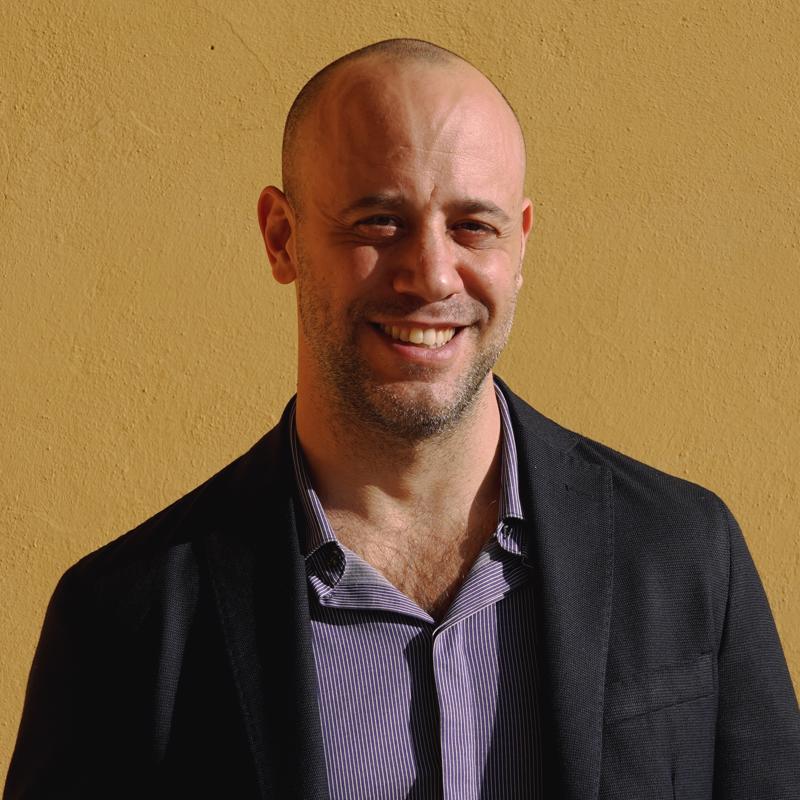-

Luigi Achilli
Part-time Assistant Professor
Robert Schuman Centre for Advanced Studies

Read more
Blog, Migration Governance
The labour market integration of displaced Ukrainians: Insights from the EU and Austria
by Leila Hadj Abdou, Anna Amman, Saskia Heilemann and Martin Stiller —– Support for Ukrainians remains high three years into the war, with 84% of Europeans continuing to welcome them, according to a recent...
If I asked you who is responsible for migration policy, you would probably think of national governments and international bodies like the EU. However, various other actors, such as NGOs, private companies, and civil entities, also influence the laws, policies, and narratives that shape international mobility (including everything from setting asylum rules to creating categories of migrants and controlling borders).
But, it is time to add criminal groups —such as smuggling and trafficking organisations—to this list of key actors.
Several instances reveal how criminal groups play a crucial role in EU migration policy and operations. For example, have you ever considered how the European asylum system really works? EU law does not allow for the regulated arrival of asylum-seekers, so their entry into EU territory is usually irregular. Since the very large majority of those who reach Europe with irregular channels rely on human smugglers, it is evident that the European asylum system is significantly dependent on criminal groups for its function.
Based on this new journal article, this blog post aims to look deeper into how criminal groups have become indispensable in managing transnational migration, influencing policies that affect millions. We’ll explore the complex relationships and the crucial role these groups play in shaping migration across borders.
Why we need to pay attention to criminal groups: a look at Libya
The EU has significantly adjusted its strategy in response to complex migration challenges by enhancing cooperation with Libya, a pivotal transit point for migrants aiming to reach Europe.
This partnership included the provision of new vessels and the establishment of a Maritime Rescue Coordination Centre, which was supported by substantial financial contributions—totalling approximately €455 million by 2021. While these initiatives are ostensibly aimed at saving lives and managing border crossings, they also serve a dual purpose by incorporating migrant smuggling and human trafficking groups into formal migration control processes.
In this context, the material and financial resources deployed by the EU prompted militias and other key actors in the Libyan smuggling market to switch sides and become crucial partners in combating smuggling. Consequently, what was once a business of mobility transformed into a business of containment, characterised by the systematic exploitation of migrants. Practices such as forced labour, kidnapping, and arbitrary detention have become methods of extorting money from migrants and their families, leading scholars to describe migrants as “walking cashpoints.”
Positioned as gatekeepers, these criminal groups exert substantial control over migrant flows by determining who can access crucial migration routes and resources. They effectively manage who may proceed on their journey towards Europe and who must wait, thus forcibly containing migrants within specific areas or deterring them from attempting their journey altogether. These organisations leverage their logistical capabilities and local influence to orchestrate the movement of migrants, often aligning with the EU’s broader goals of migration containment and deterrence.
How can we understand the role of these groups?
Imagine the EU as a manager who needs assistance handling a task as large as migration but finds that conventional methods are insufficient. Consequently, the EU relies on outside groups, including some that operate in the shadows, to help manage the flow of people striving to reach Europe. This arrangement is kind of like how big companies operate in special economic zones where different rules apply to enhance business efficiency. In Europe’s case, these “zones” are locations like Libya, where the EU utilises various groups to indirectly control migration.
These groups are not mere peripheral players; they are intricately woven into the fabric of the migration policies. They perform essential roles that, while not officially endorsed, are quietly accepted because of the strategic advantages they provide to Europe. Operating outside legal norms allows these groups to offer a flexible solution to the EU’s dilemma of upholding liberal values while controlling migration flows. This grey area enables EU member states to enforce stringent border controls indirectly, distancing themselves from direct legal repercussions and political fallout.
Why does this matter?
This strategy lets the EU manage its borders in a way that keeps some legal and ethical questions at arm’s length. However, this indirect control through criminal groups leads to serious questions about the rights and safety of the migrants. Understanding this layered approach to governance is crucial because it not only affects the lives of countless people but also challenges us to think about the responsibilities and actions of governments in today’s interconnected world.
Addressing Common Objections
It’s important to acknowledge concerns that arise with proposing that criminal groups play a key role in migration governance. One might argue that it oversimplifies a complex issue, as migration governance is, in fact, multifaceted, involving numerous actors with varying roles and interests that evolve over time. This discussion doesn’t imply that criminal influence is a fixed or universal factor; rather, it highlights how these groups can influence policies in certain situations while being disruptive or uninfluential in others.
Another concern is the perception of secretive cooperation between the EU and its member states with these criminal networks, suggesting a deliberate partnership outside the rule of law. However, the reality is often less clear-cut. Many of these interactions are shaped by unspoken agreements and the practical necessities of governance rather than formal alliances. The vague nature of some EU policies, particularly in contexts like Libya, inadvertently strengthens the role of criminal networks in migration governance, though it’s unclear whether this is a deliberate strategy by EU institutions.
The Complex Web of Migration Governance: Why We Need to Acknowledge All Players
As we’ve seen with Europe’s approach, just as specific zones around the world operate under different rules to serve global market needs, the EU and its member states employ a layered system of border management. In this system, various zones and routes are governed under different standards by a mix of actors, including criminal groups. This raises crucial discussions about the nature and implications of such governance.
The reliance on criminal networks for migration control in Europe highlights the complex challenges facing global migration governance today. It invites us to rethink how migration is managed and to consider the ethical and legal foundations of these practices. Understanding this dynamic is crucial not only for policymakers but for anyone concerned with the rights, safety, and dignity of individuals on the move.
Learn more: Read the full article ‘The missing link : the role of criminal groups in migration governance’ in the Journal of Ethnic and Migration Studies.
————-
Luigi Achilli is senior researcher at the MPC and CMI. He holds an M.A. and a Ph.D. in political anthropology from the School of Oriental and African Studies (SOAS). His work is based on extensive field research in the Middle East, and he has taught at various universities in the Middle East.

